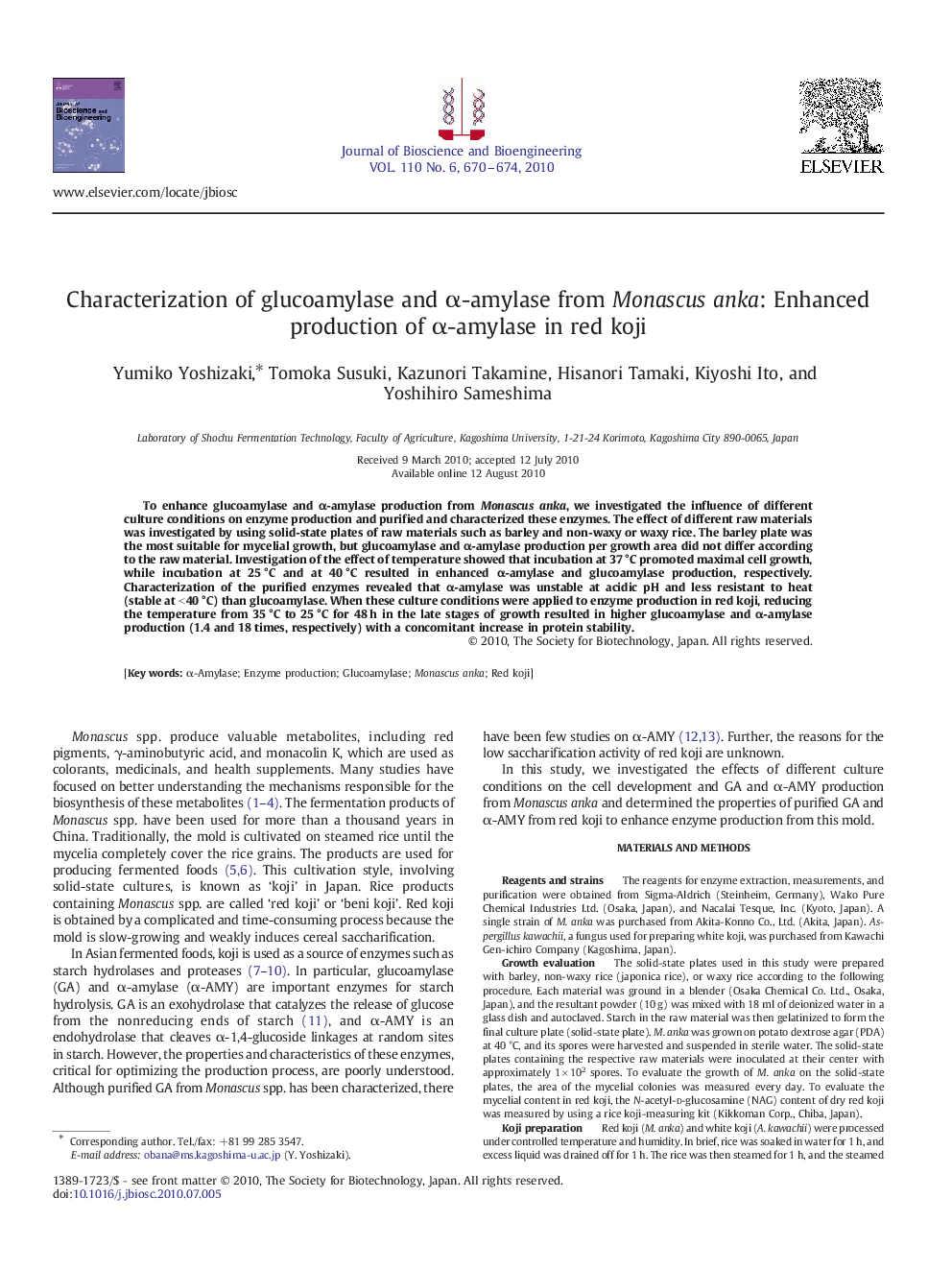| Article ID | Journal | Published Year | Pages | File Type |
|---|---|---|---|---|
| 21709 | Journal of Bioscience and Bioengineering | 2010 | 5 Pages |
To enhance glucoamylase and α-amylase production from Monascus anka, we investigated the influence of different culture conditions on enzyme production and purified and characterized these enzymes. The effect of different raw materials was investigated by using solid-state plates of raw materials such as barley and non-waxy or waxy rice. The barley plate was the most suitable for mycelial growth, but glucoamylase and α-amylase production per growth area did not differ according to the raw material. Investigation of the effect of temperature showed that incubation at 37 °C promoted maximal cell growth, while incubation at 25 °C and at 40 °C resulted in enhanced α-amylase and glucoamylase production, respectively. Characterization of the purified enzymes revealed that α-amylase was unstable at acidic pH and less resistant to heat (stable at < 40 °C) than glucoamylase. When these culture conditions were applied to enzyme production in red koji, reducing the temperature from 35 °C to 25 °C for 48 h in the late stages of growth resulted in higher glucoamylase and α-amylase production (1.4 and 18 times, respectively) with a concomitant increase in protein stability.
